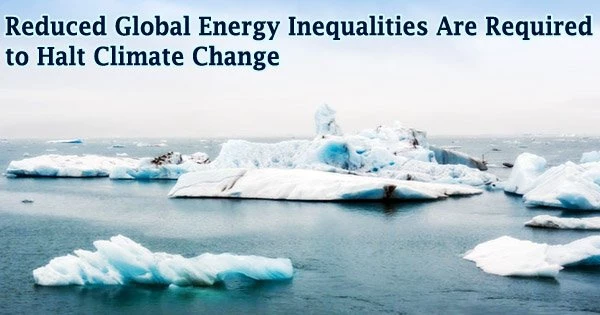According to a recent ICTA-UAB analysis, current climate mitigation scenarios will result in long-term energy use disparities between the Global North and the Global South. These scenarios are unfeasible politically because they disadvantage the Global South.
The wealthy North must lower their energy use to sustainable levels while allowing for a sufficient increase in energy use in the rest of the world in order to achieve an equitable energy transition that maintains global warming below 1.5 or 2°C.
These are the findings of a scientific study conducted by researchers Jason Hickel and Aljoša Slameršak at the Institute of Environmental Science and Technology of the Universitat Autònoma de Barcelona (ICTA-UAB), which was published today in The Lancet Planetary Health. They call for the creation of new climate mitigation scenarios that would achieve energy convergence between the Global North and the Global South and thereby gradually eradicate the energy privilege.
High rates of energy use in wealthy nations, particularly in the Global North, which much exceed what is necessary to meet human requirements, make the urgent problem of climate mitigation challenging.
The study emphasizes that the top 5% of worldwide income users consume more energy than the bottom 50% of users combined. In comparison, 780 million people do not have access to power in the world’s poorest countries, where more than 3 billion people live in energy poverty.
In comparison to low-income nations, the core members of the Organisation for Economic Co-operation and Development (OECD) and the rest of Europe utilize 130 gigajoules of energy annually on average per person.
The Paris Agreement calls for a just transition, and the Intergovernmental Panel on Climate Change (IPCC) recognises that current patterns of consumption among the global rich are unsustainable.
Jason Hickel
“Much of this excess energy is consumed by forms of production that support corporate profits and elite accumulation, such as fast fashion, sports utility vehicles, industrial meat and planned obsolescence, which have no relevance to wellbeing,” emphasises Aljoša Slameršak.
In the examined scenarios, it is anticipated that countries in Africa and the Middle East will maintain their current levels of energy consumption, or less than 30 gigajoules per person per year, throughout the majority of the century.
For the remainder of the century, the OECD nations and the rest of Europe will receive, on average, considerably over 100 gigajoules of energy per person year. Even though Latin America and Asia are using more energy, their consumption in 2100 will still be less than half that of the Global North.
In current mitigation plans, the North’s energy hegemony is maintained by restricting energy consumption in the South and betting on negative emissions technologies, which are predicated on stealing biomass from the Global South’s abundant forests.
The analysis demonstrates that in order to effectively address climate change, energy disparities between the Global North and the Global South must be reduced.
“The Paris Agreement calls for a just transition, and the Intergovernmental Panel on Climate Change (IPCC) recognises that current patterns of consumption among the global rich are unsustainable,” says Jason Hickel.
The finite nature of the earth and the need for fair distribution are stressed by the authors. A significant degree of scenarios and tactics for radical convergence are required to assure human well-being and be compatible with rapid decarbonization in order to stop climate breakdown and achieve human growth for all.





